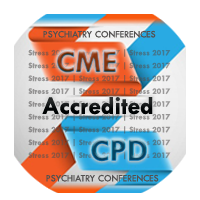
Arthur G O’Malley
Mascot Child and Family Services limited, UK
Title: The Art of BART: Bilateral Affective Reprocessing of Thoughts as a dynamic model for psychotherapy across the lifespan
Biography
Biography: Arthur G O’Malley
Abstract
This is an integrated approach to psychotherapy, which incorporates elements of trauma focused cognitive behavior therapy (TF-CBT), eye movement desensitization and reprocessing (EMDR), mindfulness, somatic experiencing and sensorimotor psychotherapy (SP). Th is workshop gives participants an understanding of information processing in the body following signifi cant life events. Gut feelings are initially registered at the level of the gut brain. Research on the gut microbiome and its relation to mental health will be presented. Th e next level of reprocessing takes place at the level of the heart brain, which is often linked to feelings of loss, panic and anxiety. Activation of the body’s energy system continues with activation of the hypothalamic pituitary adrenal (HPA) axis. A key component of reprocessing is overcoming the symptoms of speechless terror, which are felt at the level of throat and pharynx. Th e goal of activating and reprocessing these sensations motor impulses feelings and thoughts is to bring unconscious triggers into conscious awareness. In trauma, the body keeps the score with 90% of information while we are consciously aware of only 10%. Th e reprocessing is continued with the patient being maintained in calm WATERS (window of aff ective tolerance emotional regulation and stability). Th e author will explain his two and three-dimensional models of high arousal RAPIDS (racing thoughts, aff ective instability, partitioned personality, impulsivity, dissociation and suicidality). Th is will also include a demonstration of low arousal states or FROZEN (freeze reaction, oblivious, zonked out and emotionally numb). I will illustrate the use of the BART psychotherapy with diff erent types of traumatic dissociation with reference to individual cases of both acute and complex PTSD.

